Nairobi City Thunder delivered a composed, wire-to-wire performance to defeat the Johannesburg Giants in the East Division Elite 16 Final at Kasarani, sealing their unbeaten run and qualifying for the 2026 Basketball Africa League alongside their South Africa-based finals opponent.
Last Updated on
November 23, 2025
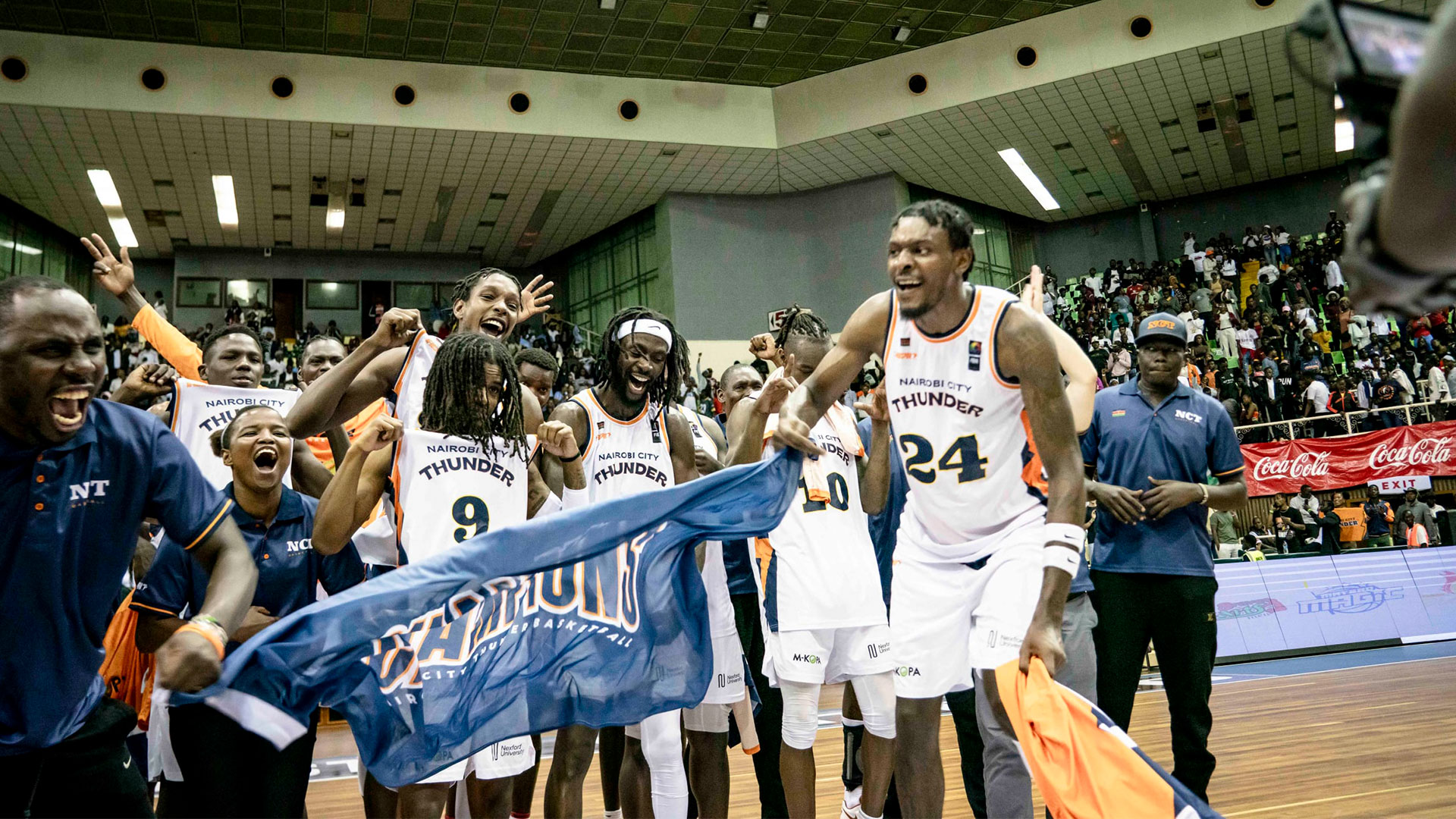
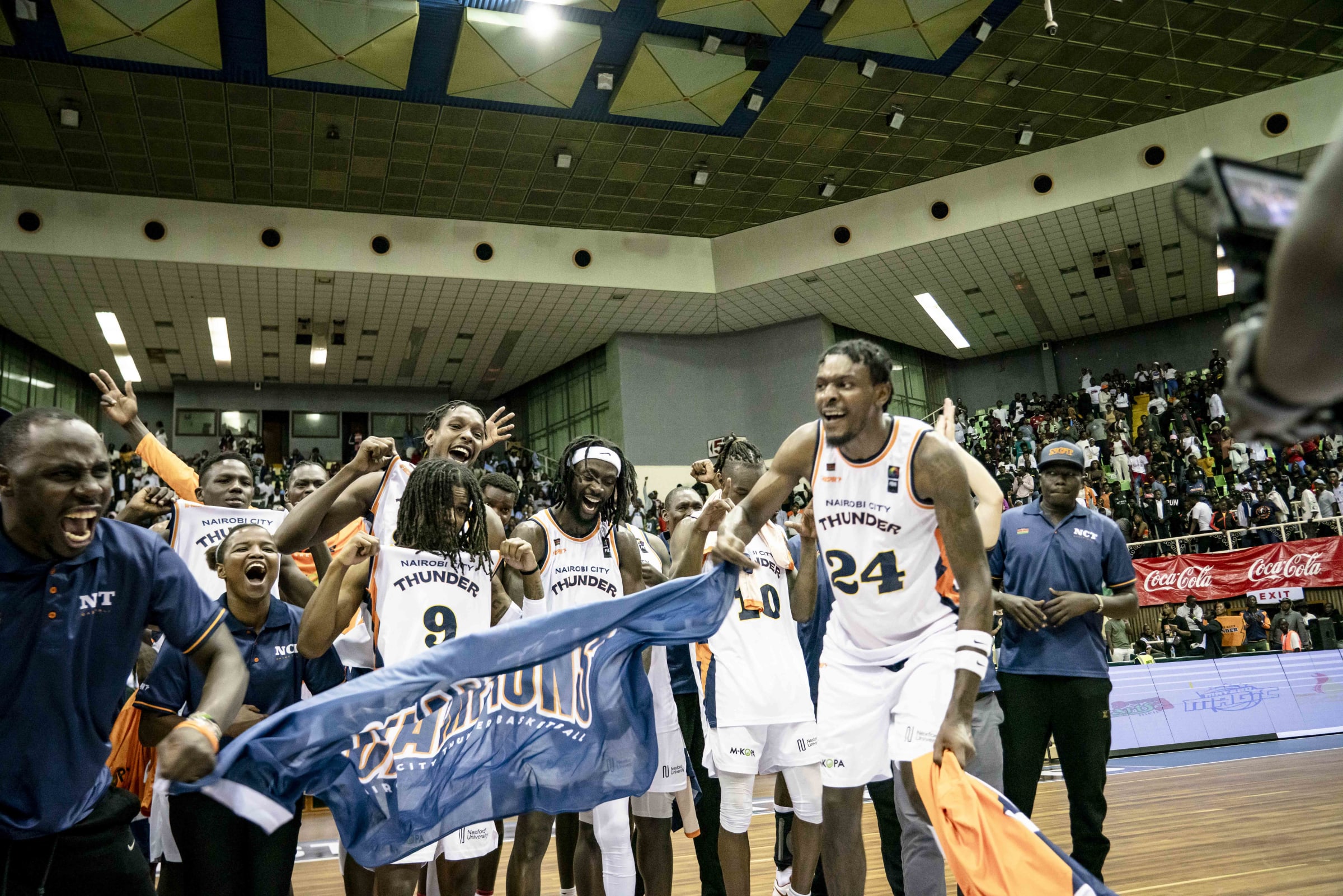
The Road to BAL East Division Elite 16 Final in Nairobi had promised a clash of styles, but Nairobi City Thunder made sure the championship game unfolded on their terms. Playing in front of a charged home crowd at Kasarani Indoor Arena, the Kenyan champions controlled the pace early, built pressure possession after possession, and never relinquished the lead in a 106–72 win over debutants Johannesburg Giants.
The result not only affirmed NCT’s unbeaten 3-0 streak heading into the Final but sent them to the 2026 Basketball Africa League (BAL) alongside the Giants, who earlier secured qualification through their 3-1 run.
Thunder’s focus was immediate. They turned the opening quarter into a statement of intent, powering ahead 28–17 behind disciplined half-court execution and efficient shot selection. The Giants tried to hang on by accelerating the tempo. Still, Nairobi’s guards, particularly Eugene Adera and Lance Thomas, dictated the rhythm at both ends, slowing the game whenever necessary and forcing Johannesburg to settle for contested looks. Even when the South Africans found small offensive bursts, NCT responded calmly, closing the second quarter with a narrow 22–21 edge to take a 50–38 halftime lead.
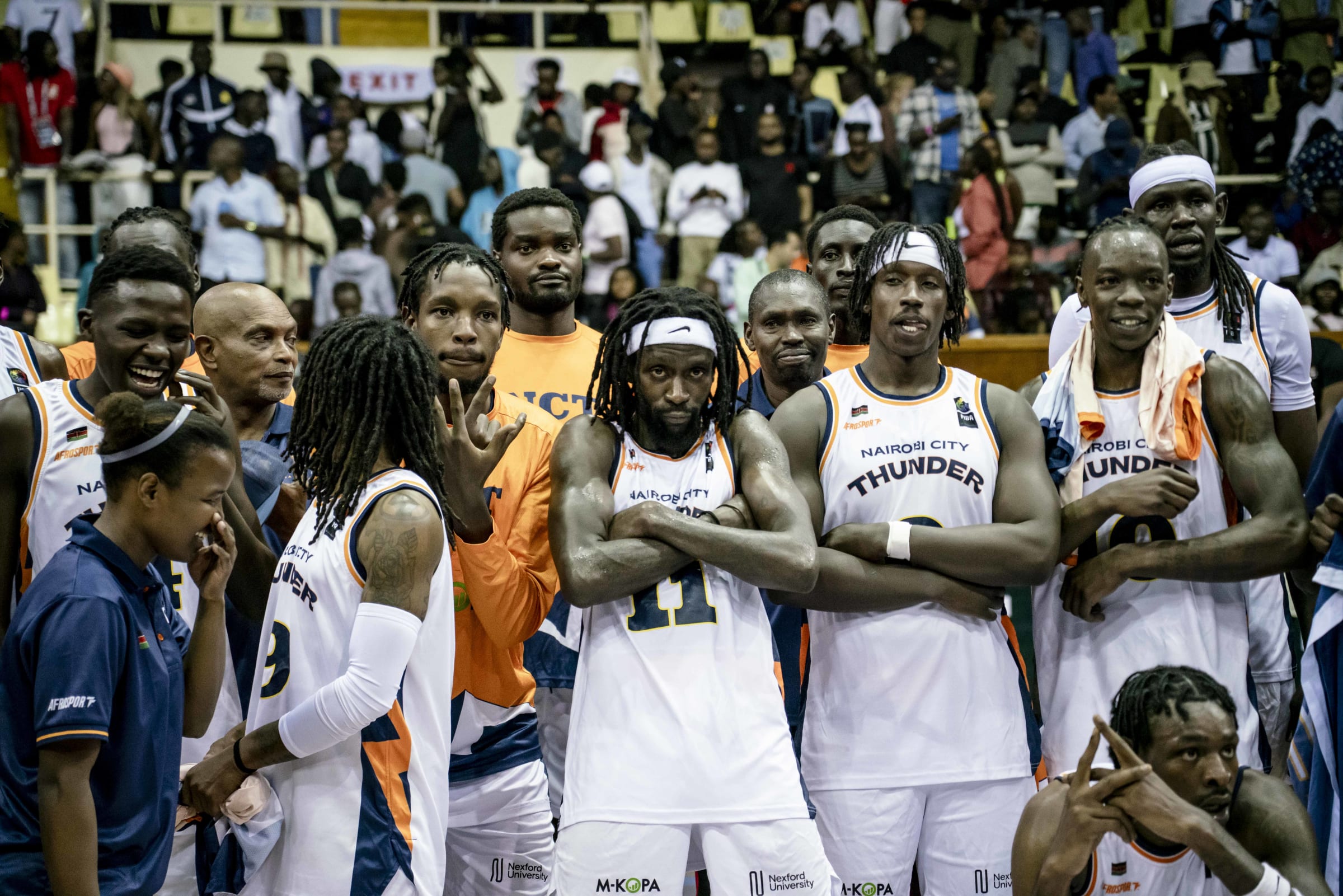
The third quarter decided everything. Nairobi erupted with a 33–23 stretch that showed why they had been the most consistent team in the East Division. Their ball movement sharpened, producing clean three-point opportunities, while their interior presence sparked second-effort scoring. The Giants, who had relied heavily on Dhieu Deing and Nkosinathi Sibanyoni all tournament, found themselves overwhelmed by NCT’s collective precision. With the lead pushing past 20 points, the contest drifted decisively toward the hosts.
Johannesburg attempted a late push, outscoring NCT 23–11 in the fourth quarter, but by then the damage was well beyond repair. Even in their final surge, the Giants’ strengths, offensive rebounding, second-chance scoring and transition bursts, could not compensate for the defensive gaps that Nairobi had punished all evening.
Ater Majok anchored Thunder’s display with a veteran performance that blended efficiency and maturity. In just under 26 minutes, he posted 17 points on 6-of-8 shooting, added four rebounds, and converted five of six free throws, giving NCT a stabilising interior option throughout the game. Whenever Johannesburg threatened to claw back, Majok provided the composure that kept Thunder in control.
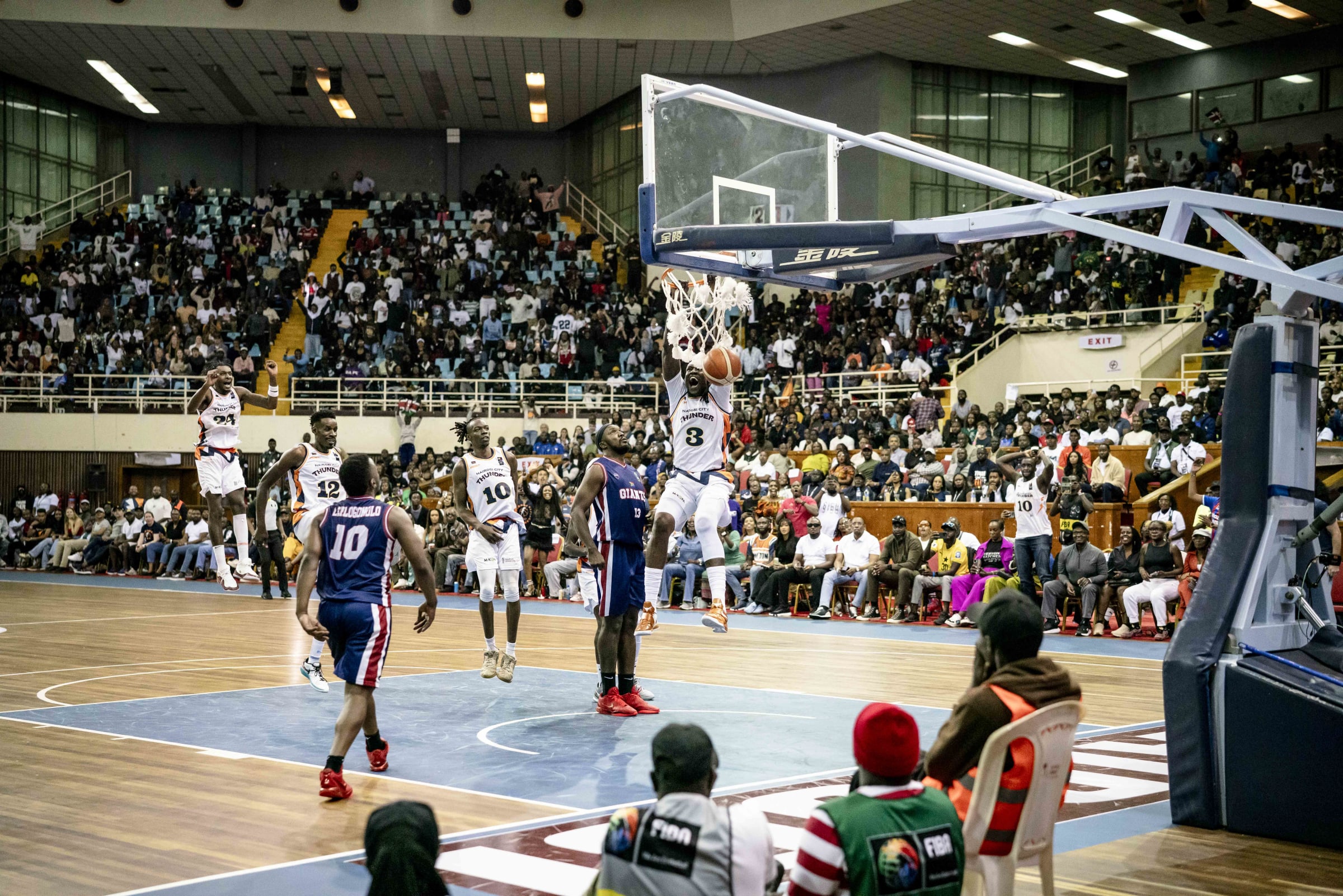
Around him, Nairobi’s perimeter unit excelled. Albert Odero contributed 14 points despite an off-shooting night from deep, while Derrick Mekenye Ogechi scored 11 on 66.7% shooting. Thomas, who played 35 minutes, was the glue of the rotation: 11 points, eight rebounds, five assists and a steady defensive presence that repeatedly disrupted the Giants’ rhythm. But the engine of the operation was Adera, who finished with a remarkable 12 rebounds and eight assists from the guard spot. His activity on both ends ensured NCT maintained structure even when the pace fluctuated.
The statistics told an interesting story. Giants actually dominated several advanced categories: points off turnovers (19–12), fast-break points (21–20), second-chance points (26–10), points in the paint (46–32), and bench contributions (41–27). They also outrebounded the Thunder 53–42 and held a clear advantage on the offensive glass. Yet those numbers highlighted Johannesburg’s inconsistency more than their threat. They created opportunities, but their 20.7% shooting from three and stretches of defensive breakdowns kept them from converting their physicality into scoreboard pressure.
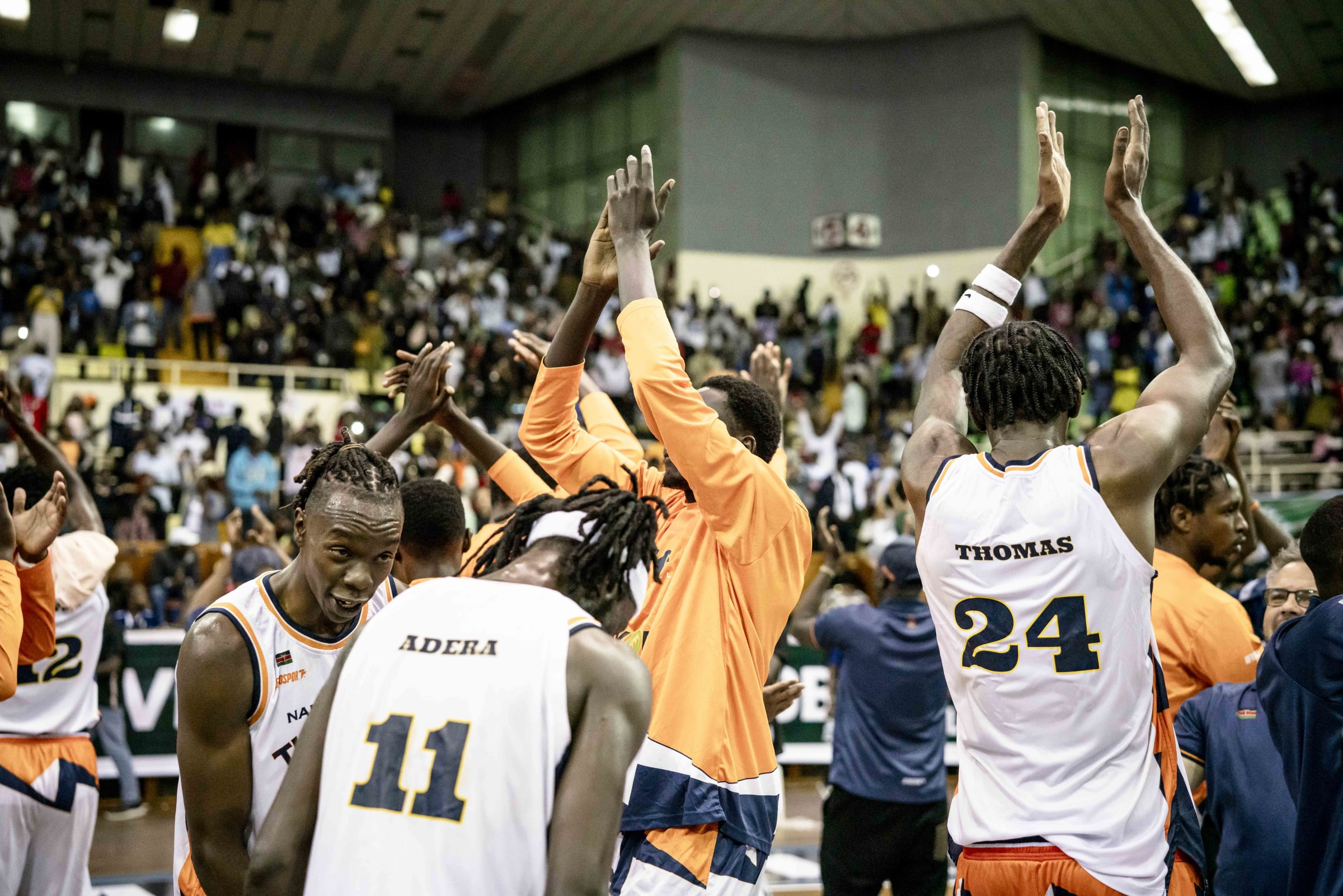
Nairobi, in contrast, shot a blistering 51.7% from beyond the arc, protected the ball, and moved it with purpose, finishing with 23 assists to the Giants’ 11. Their seven blocks against just one from Johannesburg reflected their discipline in helping the defence. Most importantly, Thunder led for 39 minutes and 41 seconds and built a game-high 22-point advantage, illustrating the extent of their control.
For Johannesburg, there were bright individual moments. Deing delivered 21 points with six made two-pointers, while Sibanyoni’s 16 points and 11 rebounds kept the Giants competitive inside. Lehlogonolo Tholo offered a spark with 14 points in under 17 minutes, shooting an efficient 6-for-9. But the team lacked the collective steadiness required to match Thunder’s methodical approach.
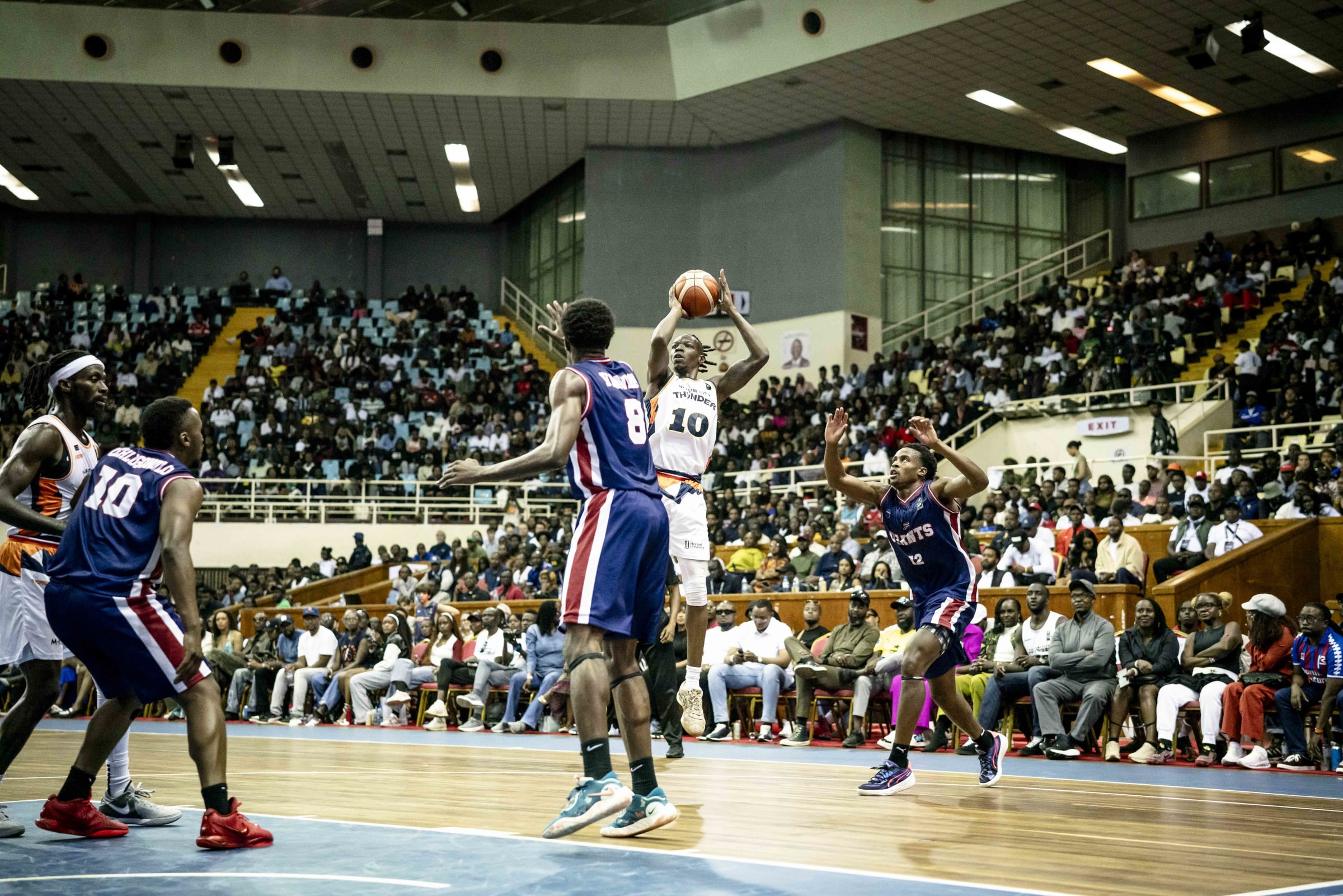
When the final buzzer sounded, Kasarani rose in celebration. Nairobi City Thunder had not only secured the East Division Elite 16 crown but also confirmed their status as a rising force heading into the 2026 BAL. The Giants, though defeated, completed a successful debut run by earning their place in Africa’s premier club competition. For both teams, Nairobi marked the beginning of a new chapter, but for the night, Thunder owned the moment.
[Phoography Courtesy of FIBA/Road to BAL]